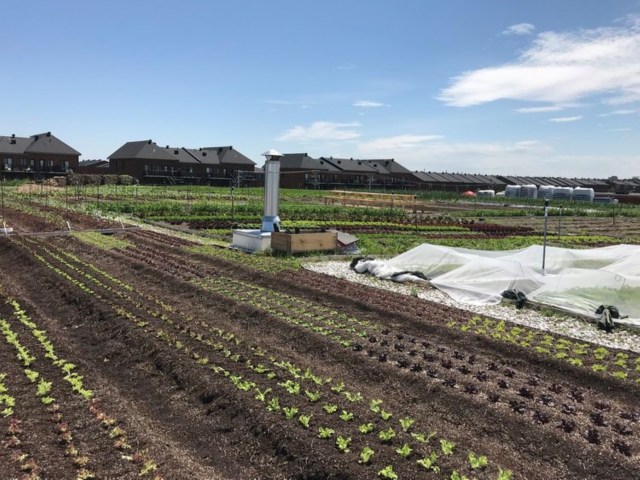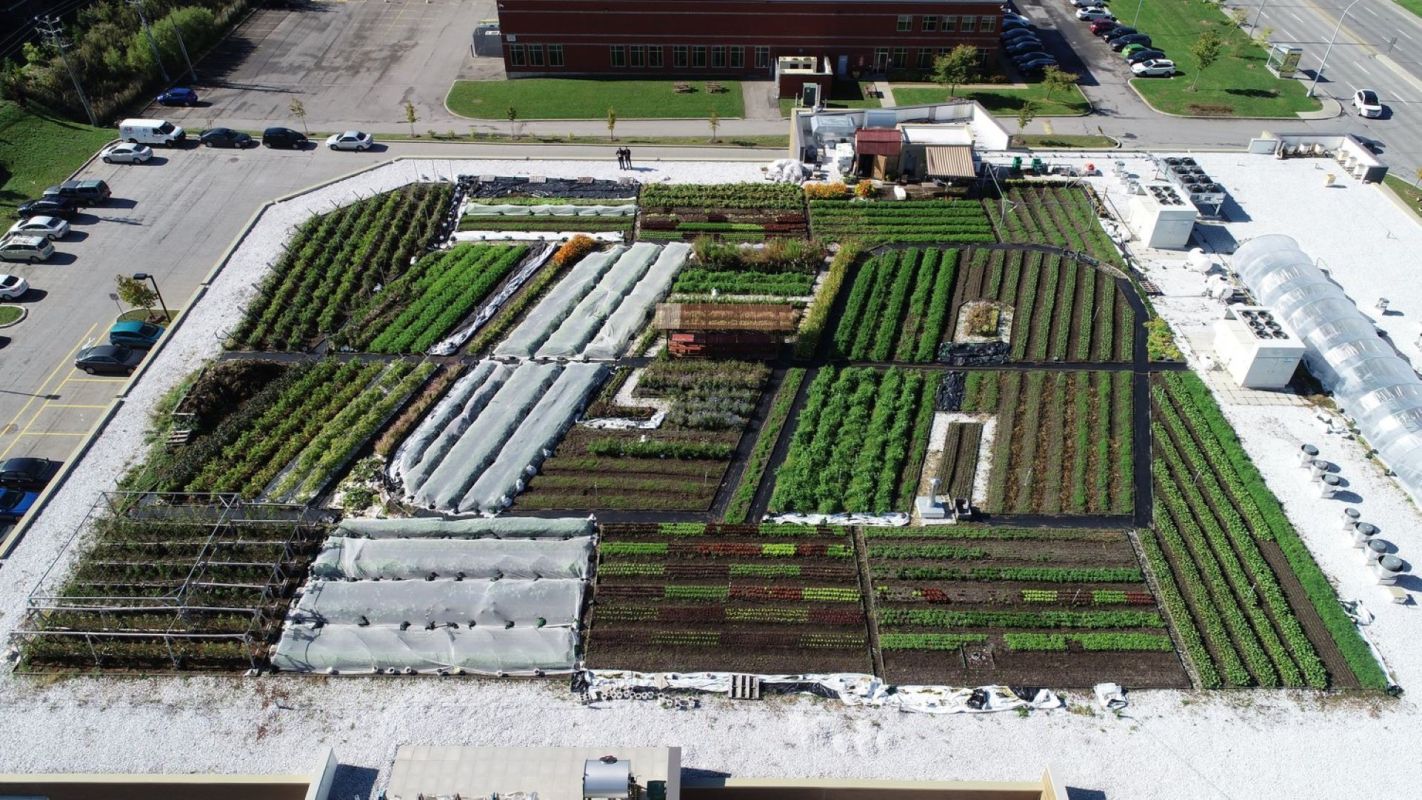Grocery stores are, for the most part, dependent on outside purveyors supplying their products. Although, one grocery store in Montreal is localizing organic food even more — all while complying with the city's green infrastructure mandate.
The IGA grocery store in Ville Saint-Laurent features a green roof that harvests more than 30 kinds of produce, honey, and cut flowers. This infrastructure development makes the IGA the first grocery store in the country to sell organic produce harvested from its roof, per Living Architecture Monitor.
Montreal mandates that all new buildings have either reflective white or green roofs. This particular project was mandated to have at least 50% of its surface covered by a green roof system, which designer La Ligne Verte translated into an extensive sedum roof.
The project on the IGA's roof has rendered significant income. According to Living Architecture Monitor, the roof produces between 35,000 and 40,000 units of produce sold annually, which equates to about 7.2 tons.

Currently, IGA owns the building itself and rents the garden to La Ligne Verte, which collects revenue from the sale of the produce. To promote the farm and increase revenue, the companies have worked together to offer dinners and events in amenity spaces on the rooftop, with the food served coming from right outside on the roof.
There are many environmental benefits to green roofs. The roofs can capture and utilize rainwater that would otherwise run off on impervious surfaces. In addition, localizing the food system can reduce the freight emissions and subsequent toxic gases needed to transport food from growers to urban retailers. According to Nature, one-fifth of the carbon pollution in the food systems are from the transportation of food products.
The roof's features also allow farmers to cultivate some crops more effectively than traditional growing operations. The soil's ideal drainage increases its workability, thus enabling the growers to plant crops earlier in the season. Garlic was harvested at this farm a month before most other farms in the province.
"Combined with beneficial farming practices such as cover crops, green manure, minimum soil disturbance, and regular additions of compost, we created an urban farm with a true living soil where insects, worms, and bacteria are thriving and make our system truly productive," said Pierre-Antoine Jacques, the farm's head grower.
Join our free newsletter for easy tips to save more, waste less, and help yourself while helping the planet.








